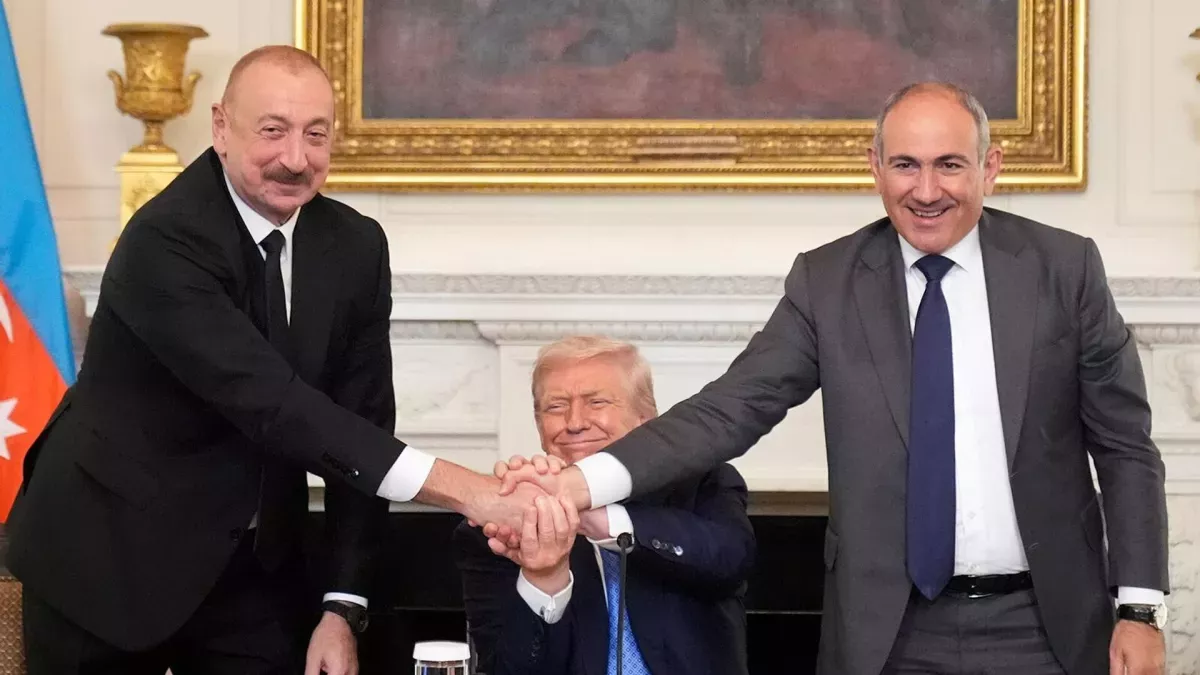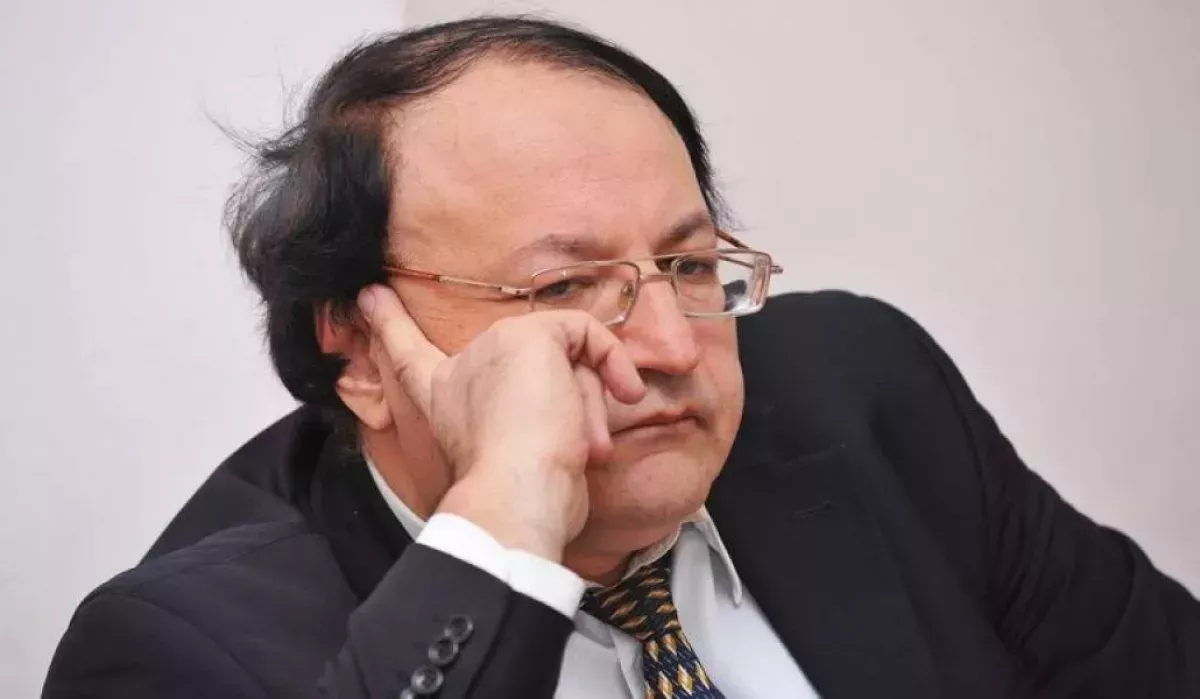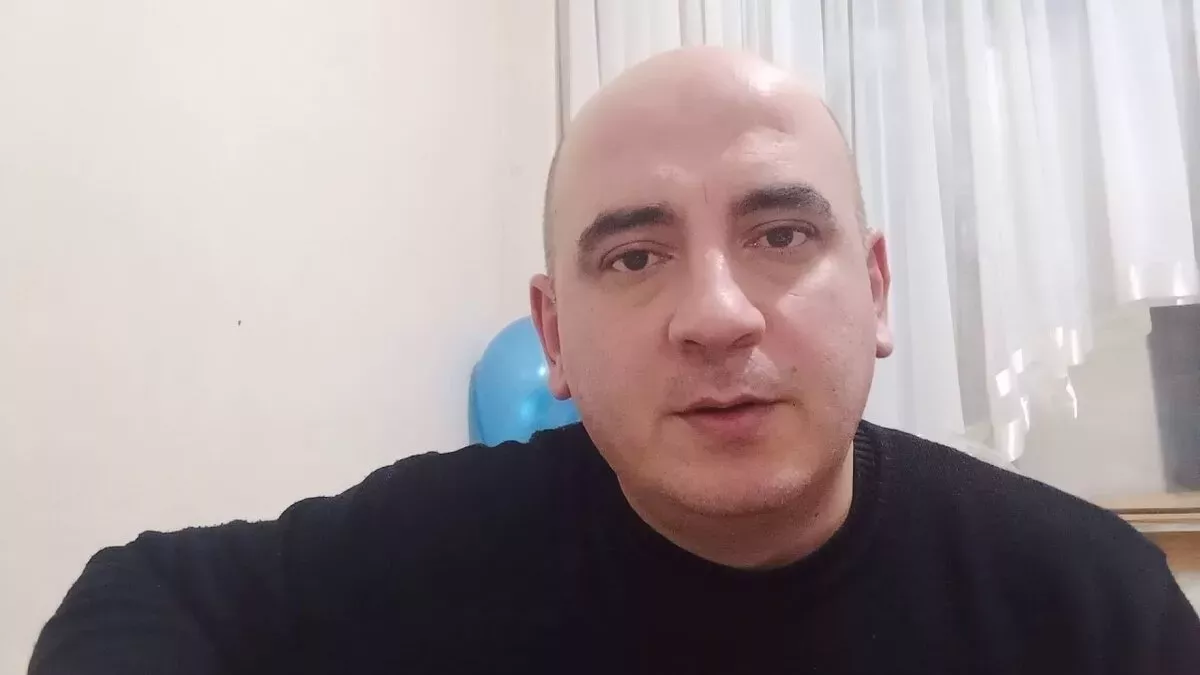Armenia's 2026 vote: Gauging public support for Pashinyan’s peace-oriented course Expert insights
“I want to congratulate all of you on the establishment of peace between Armenia and Azerbaijan, thanks to the declaration signed in Washington on August 8,” said Armenian Prime Minister Nikol Pashinyan at a government meeting on August 21.
He thanked the members of the cabinet for their work and noted that before his trip to Washington, discussions and an analysis of the declaration’s text were held with the participation of the government, an expanded Security Council, the President of Armenia, parliamentarians, and regional leaders.
“As a result, we concluded that it was necessary to take this step,” added the Prime Minister, emphasising that much work still lies ahead.
Pashinyan also stated that in the upcoming elections next summer, citizens will have to make a choice.
“I don’t want to speak of ‘peace’ and ‘war’; I’ll put it more gently — between peace and the absence of peace. And that is why, in my address, I clearly stated that this established peace requires daily care, and this is a task that we must tackle together, each in our own place, including citizens, taking into account their political positions,” he clarified.

The Prime Minister assured that the authorities have worked, are working daily, and will continue to work toward the swift signing and ratification of a peace agreement with Azerbaijan.
“Since seventh grade, I have been involved in the Karabakh movement. And in March 2025, speaking from the podium of the National Assembly, I noted that, based on my experience and analysis as Prime Minister, I came to the conclusion that we should not continue the Karabakh movement,” he said in a conversation with journalists on August 21.
According to him, this statement was made after he announced that he would lead Armenia based on this principle.
“If the citizens of Armenia believe that this should not happen, I myself call on them to start a revolution. I think I am the first and only Prime Minister in history to call on the citizens of his own country to revolt if they disagree with the stated strategy. I don’t know of a second such case. But the fact is that our citizens did not carry out a revolution because, like me, they understood: without making this decision, peace is impossible — neither in practice nor in theory. They understood that this is the principle I put forward, which, unfortunately, has existed for a long time — possibly from the very beginning,” Pashinyan said.
He added that many perceived the “Karabakh movement” differently, seeing it as a convenient lever capable of undermining Armenia’s sovereignty, statehood, and independence. “And it must be acknowledged that this lever was used effectively. Now the era of peace has arrived, and the citizens of Armenia have accepted it with satisfaction. There is ample evidence of this, and no facts exist that could contradict it,” the Prime Minister concluded.
Caliber.Az spoke with well-known experts about the significance of Pashinyan’s statements.

The President of the Association of Political Scientists of Armenia, Doctor of Political Science Hmayak Hovhannisyan, is confident that the Prime Minister’s words reflect his sincere position, as well as that of the Civil Contract party.
“The upcoming parliamentary elections in June 2026 will show how much these statements align with the views of the majority of citizens of the Republic of Armenia. Voters will have to assess the activities of Pashinyan and his party, which currently holds a stable parliamentary majority, effectively allowing it to pass laws and decisions favorable to the Prime Minister without obstacles.”
“Armenia has a parliamentary form of government, and it is the parliamentary elections that will provide a real assessment of the course of the current leadership. Despite a decline in his approval ratings, Pashinyan still leads other contenders. A key role here is played by the electoral law, adopted under the direction of Serzh Sargsyan during the Republican Party’s rule, which Pashinyan, upon coming to power, did not revise. It is this law that allows him to retain power,” the expert noted.
According to Hovhannisyan, the weakness of the main opposition, which has failed to shed the burden of responsibility for the failed governance of previous authorities, only strengthens the current Prime Minister’s position.
“This law allows the ruling party to form a stable majority even if it receives around 15% of the vote. Therefore, it is no coincidence that its author, Serzh Sargsyan, today states that removing Nikol Pashinyan is only possible through street pressure, not through democratic elections. He knows very well the ‘gift’ he left for Pashinyan,” he said.
Regarding the peace agreement initialed in Washington, Ovannisyan expressed confidence in its effectiveness.
“Our peoples never wanted to be in conflict. As a close associate of Karen Demirchyan, the most popular Armenian politician in modern history, I can responsibly state: the conflict was orchestrated by Mikhail Gorbachev and Alexander Yakovlev. They removed experienced and wise leaders — Heydar Aliyev and Karen Demirchyan — from power, only to bring political adventurers to leadership and pit our peoples against each other. Today, for the sake of the future, we are obliged to end hostility and open the way to peace,” the expert emphasised.

Meanwhile, Armenian analyst and publicist Ishkhan Verdyan notes that if one looks past the media noise and observes life in Yerevan, it is clear that people are living ordinary lives, and there are no mass protests against the Prime Minister.
“Those who oppose him repeatedly gather the same small group of supporters, long known to everyone. Moreover, the core of this crowd mainly consists of people from Karabakh. Therefore, the majority of society is satisfied with Nikol Pashinyan and will not obstruct his initiatives. This creates favorable conditions for the Prime Minister to achieve significant results both in foreign and domestic policy.
After the Washington agreements, Russia’s influence in Armenia has weakened, and along with it, the resources of the revanchist opposition have decreased. They will have to face reality without the support of the ‘northern guardian.’ Under these circumstances, the process of peaceful dialogue can move much faster,” he believes.
Verdyan emphasized that the main problem remains the “Karabakh clan” and the Dashnaks associated with it.
Armenian analyst and publicist Ishkhan Verdyan noted that if one looks past the media noise and observes life in Yerevan, it is clear that people are living ordinary lives, and there are no mass protests against the Prime Minister.
“Those who oppose him repeatedly gather the same small group of supporters, long known to everyone. Moreover, the core of this crowd mainly consists of people from Karabakh. Therefore, the majority of society is satisfied with Nikol Pashinyan and will not obstruct his initiatives. This creates favourable conditions for the Prime Minister to achieve significant results both in foreign and domestic policy.
After the Washington agreements, Russia’s influence in Armenia has weakened, and along with it, the resources of the revanchist opposition have decreased. They will have to face reality without the support of the ‘northern guardian.’ Under these circumstances, the process of peaceful dialogue can move much faster,” he believes.
Verdyan emphasised that the main problem remains the “Karabakh clan” and the Dashnaks associated with it.
“They continue to smolder and spread toxic rhetoric aimed at undermining Pashinyan’s peace initiatives. Their goal is simple — to discredit Azerbaijan and prepare the ground for a new conflict.
Pashinyan himself does not fully realise this. Since his youth, he has been involved in the Karabakh movement, and residual distortions in his worldview persist to this day. This is reflected, for example, in his rigid stance on the impossibility of Karabakh Armenians returning to Karabakh or acknowledging that Armenians can be in an Azerbaijani prison even for crimes. This is, undoubtedly, a bias,” the expert noted.
According to him, Pashinyan speaks of the beginning of an “era of peace,” but questions remain: does he understand what this means in practice? Is he ready for the fact that Armenians will have to interact with people they once considered enemies? How much will his own convictions slow down the process?
“A peace treaty can be signed tomorrow or in several years — as a symbolic end to the conflict. But the document itself does not solve the problems. Far more important is society’s readiness to understand what this treaty enshrines and what reality it establishes. The success of the peace process will depend not on the text of the agreement, but on the internal state of society at the moment of its implementation,” Verdyan concluded.








